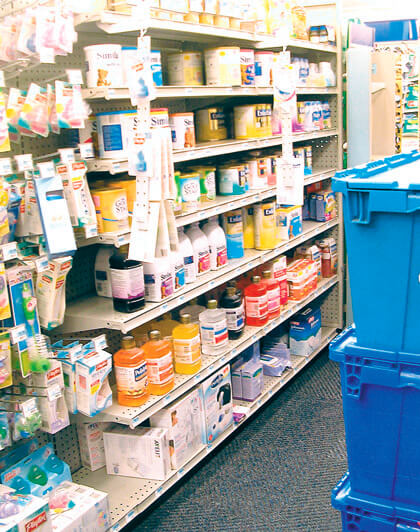By Jeremy Walsh
A pair of the largest pharmacy chains in the country reached an agreement to provide prescription instructions in the native language of their customers, Attorney General Andrew Cuomo announced last Thursday, marking a significant step in the battle between immigrant advocates in Queens and several borough pharmacies.
CVS and Rite−Aid, which also owns Eckerd and Genovese pharmacies, will counsel all pharmacy customers about prescription information in their own language and provide written translations in Spanish, Chinese, Italian, Russian, French and Polish, Cuomo said.
“We need to make sure that all New Yorkers can read and understand the vital information about their medications, regardless of whether English is their first language,” Cuomo said in a statement. “CVS and Rite−Aid have taken important steps to ensure that customers receive proper assistance in understanding their medication.”
The action comes more than a year after the immigrant advocacy group Make the Road New York filed a complaint with Cuomo’s office, alleging that the failure to translate the labels was putting lives at risk.
The Queens pharmacies listed in the complaint included two Duane Reade sites on Myrtle Avenue in Ridgewood, Rite−Aid Pharmacy locations on 43rd Avenue and Greenpoint Avenue in Sunnyside, a Rite−Aid on Hillside Avenue in Jamaica and another on Junction Boulevard in Flushing, a Hamtini Pharmacy on Seneca Avenue in Ridgewood and an Eckerd Pharmacy on Roosevelt Avenue in Woodside.
Cuomo said his office initiated an undercover investigation into the policies and procedures of the pharmacies.
New York law requires pharmacists to personally provide information about prescription drugs to all patients, orally and in writing, and prohibits pharmacies from conducting business in a way that discriminates against non−English speakers.
Make the Road New York said the lack of such information led many immigrants to risk their health.
The group cited the experience of Queens resident Maria Cadena, who gave her child a couple of teaspoons of what she thought was syrup to be taken internally. The medicine turned out to be something to be put on the skin, she said.
“I didn’t know because nobody at the pharmacy explained this when they gave it to me, and the label was in English,” she said in a statement released by Make the Road. It was not known what happened to the child.
Theo Oshiro, Make the Road’s health advocacy director, said some people he speaks with are afraid to go to the pharmacy because of the communication barrier.
“Hopefully, as a result of these settlement agreements, we will see major improvements in pharmacies throughout New York,” he said.
Reach reporter Jeremy Walsh by e−mail at jwalsh@timesledger.com or by phone at 718−229−0300, Ext. 154.



































